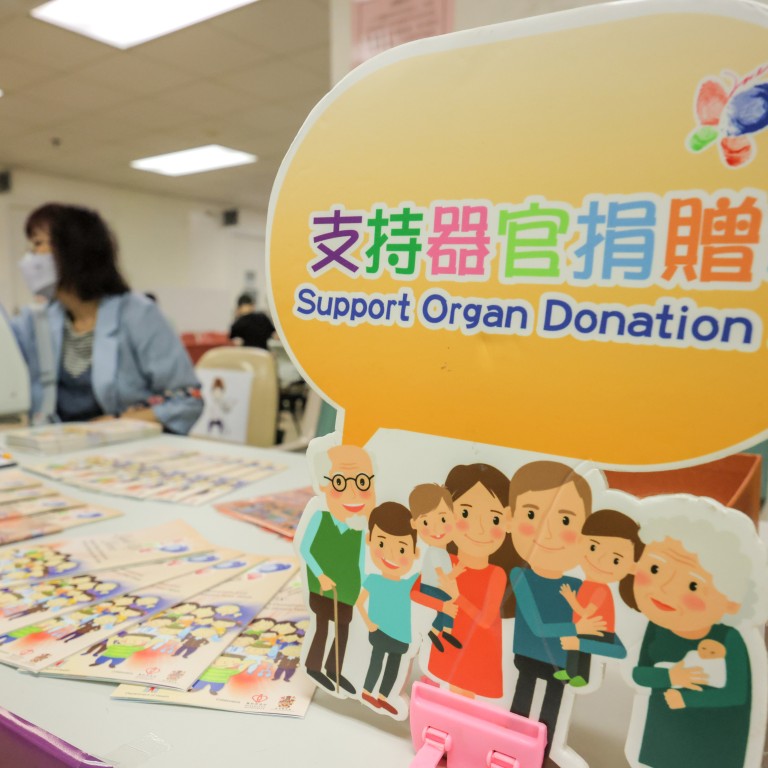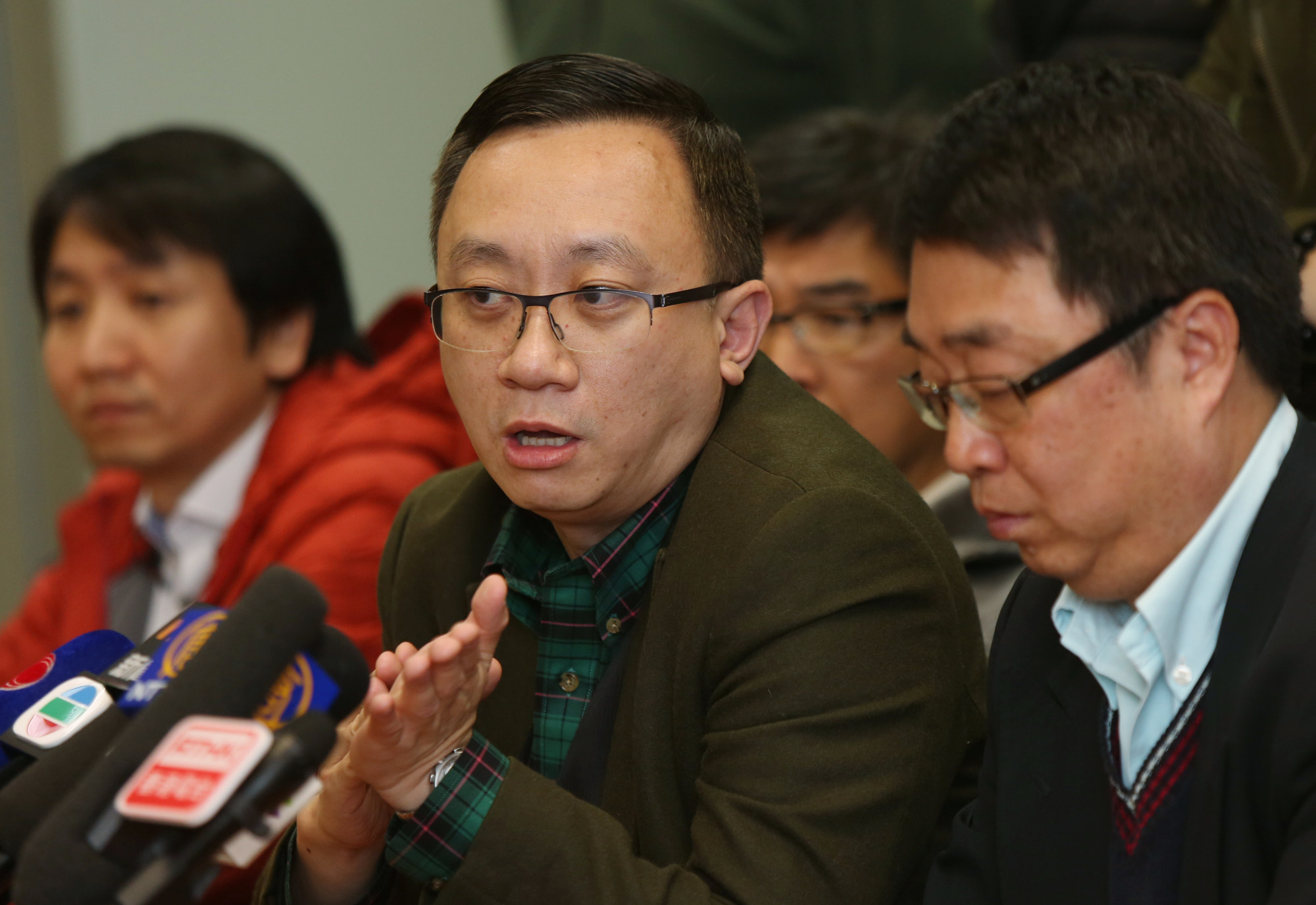
Explainer | What’s behind the wave of withdrawals from Hong Kong organ donor register?
- Hong Kong’s organ donation registry has recorded a spike in withdrawal applications, although some of them are bogus, authorities say
- Post offers a rundown of city’s organ donation system, what triggered recent controversy and how other cross-border transplant schemes operate
According to authorities, some internet users have encouraged organ donors to check recipients’ identities, which is not possible, and urged others to withdraw from the register after the government in December said it hoped to establish a cross-border donation mechanism with mainland China.
Here the Post offers a rundown of Hong Kong’s organ donation system, what triggered the recent controversy and how other cross-border transplant schemes operate.
1. Why is the scheme being considered?
City and mainland authorities took an interest in standardising cross-border organ donations after a four-month-old Hong Kong girl was saved in December thanks to the first such collaboration between the two sides.
After receiving a heart donated across the border, Cleo Lai Tsz-hei underwent a successful surgical procedure to correct a cardiac muscle problem. Hong Kong’s Hospital Authority in February said Cleo was breathing unaided and recovering “as anticipated”.
Hong Kong to benefit from proposed organ donation scheme with mainland: experts
Following the successful transplant, Secretary of Health Lo Chung-mau said he hoped Hong Kong and the mainland could establish a mutual assistance scheme that could help patients waiting for life-saving surgery.
The proposal would act as a second-tier response if patients on either side of the border could not find a match locally.

2. How will Hong Kong and mainland China collaborate?
When a match cannot be found for an organ on the mainland, authorities will alert their Hong Kong counterparts, who will look for potential local patients, according to Professor Albert Chan Chi-yan, a transplant expert who visited Guangdong province during the weekend as part of a delegation to discuss collaboration.
Frontline doctors will make clinical judgments on whether organs suit patients, and decide on transplants. Identities of donors and recipients will remain unknown to each other.
About 1,100 organs on the mainland are not matched to patients each year, so Hong Kong patients could benefit from the pool.
Delegation member Professor Philip Li Kam-tao said the chance of Hong Kong organs being used on the mainland was slim, given the long queue for transplants and the small number of donations received each year.
3. Why is the scheme considered controversial?
Despite introducing a central computer database in 2013 to regulate donations and banning the extraction of organs from political prisoners in 2015, Beijing has continued to face accusations from human rights groups and lawyers of dubiously sourced transplants.
The International Society for Heart and Lung Transplantation, whose membership includes more than 3,700 medical practitioners from over 45 countries, in April last year said organ donations from the mainland should not be accepted.
In Hong Kong, authorities have hit back at internet users calling for greater scrutiny of transplant recipients and urging others to withdraw from the city’s donor registry amid talks about possible cross-border collaboration.
Hong Kong baby Cleo now breathing unaided after first cross-border organ transplant
Dr Chau Ka-foon, honorary president of the Hong Kong Transplant Sports Association, said some people could be withdrawing from the registry because they were unfamiliar with the healthcare system on the mainland and distrusted it.
She advised the government to focus more on explaining how the proposal would work and prevent residents from developing misconceptions about the circumstances under which organs would be sent to the mainland.
Tim Pang Hung-cheong, a patients’ rights advocate, said some people could have deregistered because of emigration or due to taking a critical political stance towards the mainland.
4. How many people have withdrawn from the registry?
The Department of Health, which manages the organ donation register, said it had noticed some “abnormalities” in the figures on withdrawals.
The register’s website received 5,785 withdrawal applications between December and April, “significantly higher” than in the past.
But 2,905 applications involved people who had never registered as organ donors or made more than one withdrawal request.
Hong Kong baby’s heart transplant sparks hopes of long-term cross-border scheme
The remainder, 2,880 applications, was still a more than twofold increase from the 1,068 received over the whole of 2022.
The number of withdrawal applications has been rising in recent years, with 266 in 2018, 524 and 730 over the next two years, and 748 in 2021.
Authorities said they could not rule out that “a small number of people” had filed requests with the aim of “disrupting the representativeness of the Centralised Organ Donation Register and increasing the administrative burden on government personnel”.
5. Can I check my donor status online?
In Hong Kong, organ donation is voluntary. Those who prefer not to be included in the central registry can carry a signed organ donor card instead.
There is no way to instantly check one’s status on the central registry’s website. Donors must file a “data access request” either online or by post to review their particulars.
Pang said there was no specific system that allowed donors to immediately verify their status before they filed a withdrawal application.
“That has led to what has happened now – a person might not have a proper registration record but can still go ahead for withdrawal,” he said, calling for the government to revise the registration and withdrawal process.

Francis Fong Po-kiu, honorary president of the Hong Kong Information Technology Federation, suggested authorities introduce a login system for the registry’s website with a two-step verification process.
“Users could log in, register, access the data or make any changes,” he said, adding it would screen out redundant withdrawal requests and help save on administrative work.
The Department of Health said authorities were reviewing the registration and withdrawal process, with factors such as identity verification and personal privacy to be considered as part of any system update.
6. How many patients are waiting for transplants in Hong Kong?
Official figures showed 2,433 people were waiting for kidney transplants and more than 370 people needed corneas as of late March. Another 80 required heart transplants, while 64 were waiting for liver donations and 17 for lungs.
Last year, 29 people donated their organs after death and 23 living donors volunteered to offer up a kidney or part of their liver.
7. How do cross-border schemes work elsewhere?
There are three major organisations in Europe that coordinate cross-border organ donations, including the Netherlands-based NGO Eurotransplant, which handles requests between Germany, Austria, Belgium and five other countries.
Potential recipients are placed on an international waiting list shared among the organisation’s member states. Possible donors are assessed based on factors such as blood type, height, age and weight.
Organs are considered for the most urgent patients on the list. If no matches are found, the NGO searches for candidates in the donor’s country followed by less-urgent international cases.


